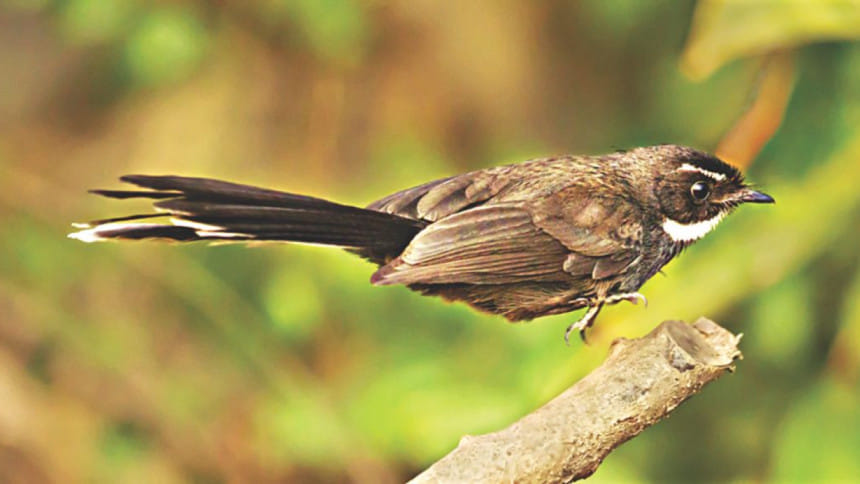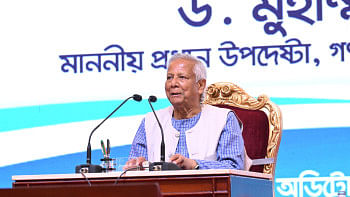Elegy for Paradise

I became a regular visitor to Purbachol eleven years ago. I had just returned home after three decades abroad and was adjusting to frenetic Dhaka. Its eastern periphery was a bucolic escape for me every weekend when my friends and I bicycled Purbachol's village roads. Nowadays I rarely bicycle, but I visit Purbachol for its birds, having found many rare and special species there.
The area is large, so I am constantly finding new corners to explore. One afternoon last week I found myself in one such place. In an open area filled up with pumped-in riverbed sediment, where remains of shells and nautiluses lurked in the sand like modern fossils, a grid of machas supported a farmer's vegetable creepers. The far side of the machas was fenced by a row of tall dhol-kolmi plants. Shouldering my way through them, I beheld a small meadow, about a quarter of an acre, surrounded by nondescript trees and a longish puddle of muddy water on one side. Two taal palms grew at a far corner. The farmer's leaky water pipe ran through the meadow bringing water to the vegetable patches from a distant pond.
In short, it was a run-of-the-mill boring village meadow.
The afternoon sun behind me burned a soft golden yellow. As I walked through the meadow a bird's movement near the puddle caught my eye. I quickly hid behind some trees, stood still, and scanned for that bird.
What unfolded in the next few minutes was like a dream. Within five minutes the meadow had filled with birds, some bathing in the water leaking from the pipe, others eating fruits and insects from trees, yet others simply playing with each other.
There must have been an astonishing fifteen species there, from small flycatchers to mynas and bulbuls, from common doves to uncommon cuckooshrikes. They stayed for ten or fifteen minutes before flying off to... who knows where?
In the past year I found other places in Purbachol that were equally astonishing: a banyan tree full of green horial pigeons, a rare Burmese shrike hunting in its territory (which made us re-evaluate the status of this bird in Bangladesh), hundreds of munias playing among the kash, raptors such as kestrels, falcons, buzzards, eagles and kites hunting from the sky. I saw wildlife too: jackals, mongoose, monitor lizards, snakes, and various rodents.
So here I was in this meadow of dreams, relishing a scene that every birder wishes for, so close to Dhaka. And yet my heart ached. For I knew it would be gone next year.
The face of Purbachol is changing so fast it makes my head spin. Dozens of boundary walls are erected every day around plots worth crores. One time, I returned after two weeks to a bamboo grove – where I had on many occasions watched a delightful white-throated fantail playing - to find it decimated, its underlying earth gouged out by giant machines – and who knew or cared about one small fantail?
So this is the price of development. Don't misunderstand me. I love development – it means our people earn and live better, longer. It means we hold our head up high among nations.
But isn't there some way to save even a part of this paradise so close to Dhaka? If you are a Purbachol landowner I urge you to plant bird-friendly, native trees (banyan, mango, boroi, jackfruit, koroi etc.) in your plot so our slice of heaven can breathe just a little longer.
facebook.com/tangents.ikabir

 For all latest news, follow The Daily Star's Google News channel.
For all latest news, follow The Daily Star's Google News channel. 



Comments